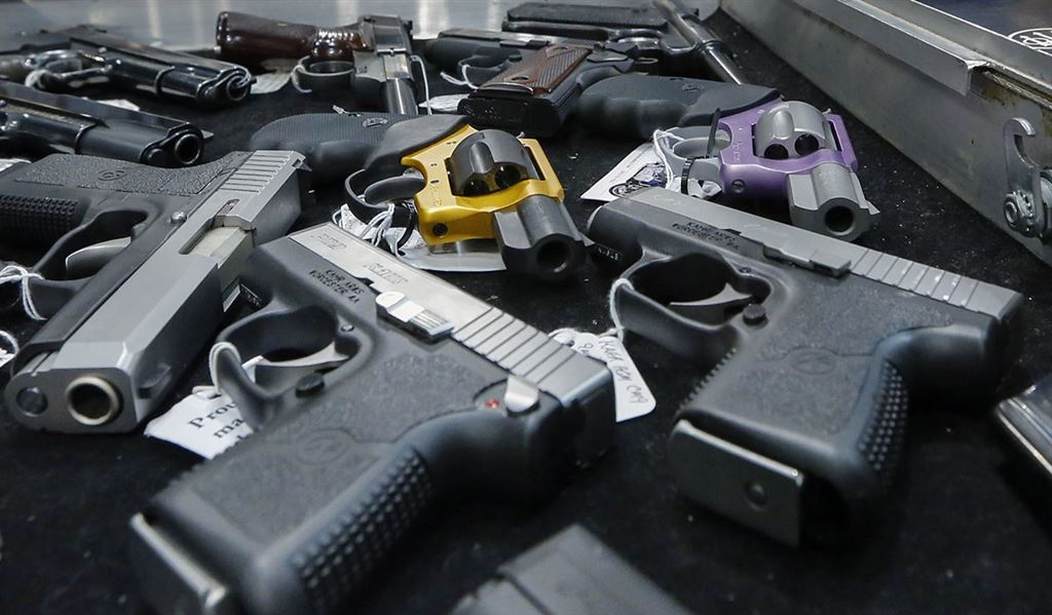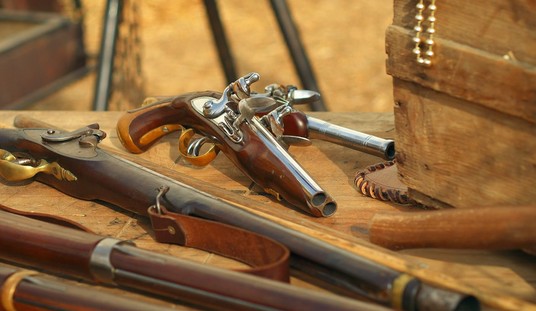U.S. District Judge Carlton Reeves, who was appointed to the bench by then-President Barack Obama back in 2010, is using a case involving a convicted felon caught with a gun to complain about the Supreme Court’s decision in New York State Rifle & Pistol Association v. Bruen, arguing that the Court’s decision has left him wondering if he needs to appoint an historian to help him determine the legality of the federal prohibition on felons owning firearms.
“This court is not a trained historian,” Reeves wrote in an order released last week.
“The justices of the Supreme Court, as distinguished as they may be, are not trained historians,” he continued.
“And we are not experts in what white, wealthy and male property owners thought about firearms regulation in 1791,” he said.
The
Bruen decision, he said, requires him to “play historian in the name of constitutional adjudication.”
Reeves, who sits on the United States District Court for the Southern District of Mississippi, ordered the parties, including the Justice Department, to brief him on whether he should appoint a historian within 30 days.
“Not wanting to itself cherry-pick the history, the Court now asks the parties whether it should appoint a historian to serve as a consulting expert in this matter,” he said.
The challenger to the felon possession law, Jesse Bullock, says the regulation cannot withstand the Supreme Court’s latest decision interpreting the Second Amendment.
“Founding era legislatures did not strip felons of the right to bear arms simply because of their status as felons,” Bullock argued.
No offense to the judge here, but if he’s the only member of the federal judiciary who’s felt the need to officially bring an historian into a case involving the Second Amendment then maybe the problem isn’t with the Bruen decision but his own viewpoint on the right to keep and bear arms.
In fact, just a few weeks ago another federal judge, this one in Texas,
upheld the federal statute barring those convicted of even non-violent felonies from possessing firearms or ammunition. U.S. District Judge David Counts ruled that “even with a longstanding general concern for public safety, history lacks direct examples about felons specifically… [b]ut just because there are no straightforward examples does not mean the Court’s historical inquiry stops there.”
In sum, Heller identified the right to keep and bear arms as held by “members of the political community.” And in doing so, Justice Scalia stated that all constitutional provisions mentioning “the people” were consistent. Through the historical analogies above, the Court’s inquiry is clear—this Nation has a historical tradition of excluding felons and those who abuse their rights to commit violence from the rights and powers of “the people.” Consistent with Heller’s definition, if groups have been categorically excluded under other constitutional provisions bestowing rights to “the people,” logic demands that society could also exclude those groups from under the Second Amendment.
This is also consistent with the founders’ idea of popular sovereignty: giving “the people” the right to govern themselves. Put differently, it’s the right within the Constitution’s structure to exclude those who abuse the rights of “the people.” And the people have wielded this right constitutionally under provisions declared equal by the Supreme Court—so exercising that right under the Second Amendment should be no different. Thus, § 922(g)(1) is constitutional on its face and as applied to Defendant.
Now, you can agree or disagree with Counts’ ruling, but he didn’t feel the need to appoint an historian to help him reach his conclusion. To be fair, the judge did point out the fact that there’s been some discussion and debate within the federal judiciary over the constitutionality of the current law, noting that Justice Amy Coney Barrett has previously argued that the standard for prohibiting firearms possession should be based on a finding of “dangerousness” instead of someone’s status as a convicted felon, but that debate didn’t preclude him from reaching his own determination about the validity of the law in question.
Judge Reeves’ complaints about the Bruen decision have been echoed by gun control advocates and activists who allege that the Supreme Court’s “text, history, and tradition” test to determine the constitutionality of gun control laws will force judges to become armchair historians in order to do their job, but I think their real issue is the fact that under the test laid out by SCOTUS many of their favorite infringements are going to fail a legal challenge.
Regardless, if Judge Reeves feels like he’s unable to perform the duties of his job without bringing in outside help perhaps it’s time for him to step down from the bench, though given that his replacement would be picked by Joe Biden, I doubt that they’d have any more respect for or understanding of the right to keep and bear arms in U.S. history.








Join the conversation as a VIP Member